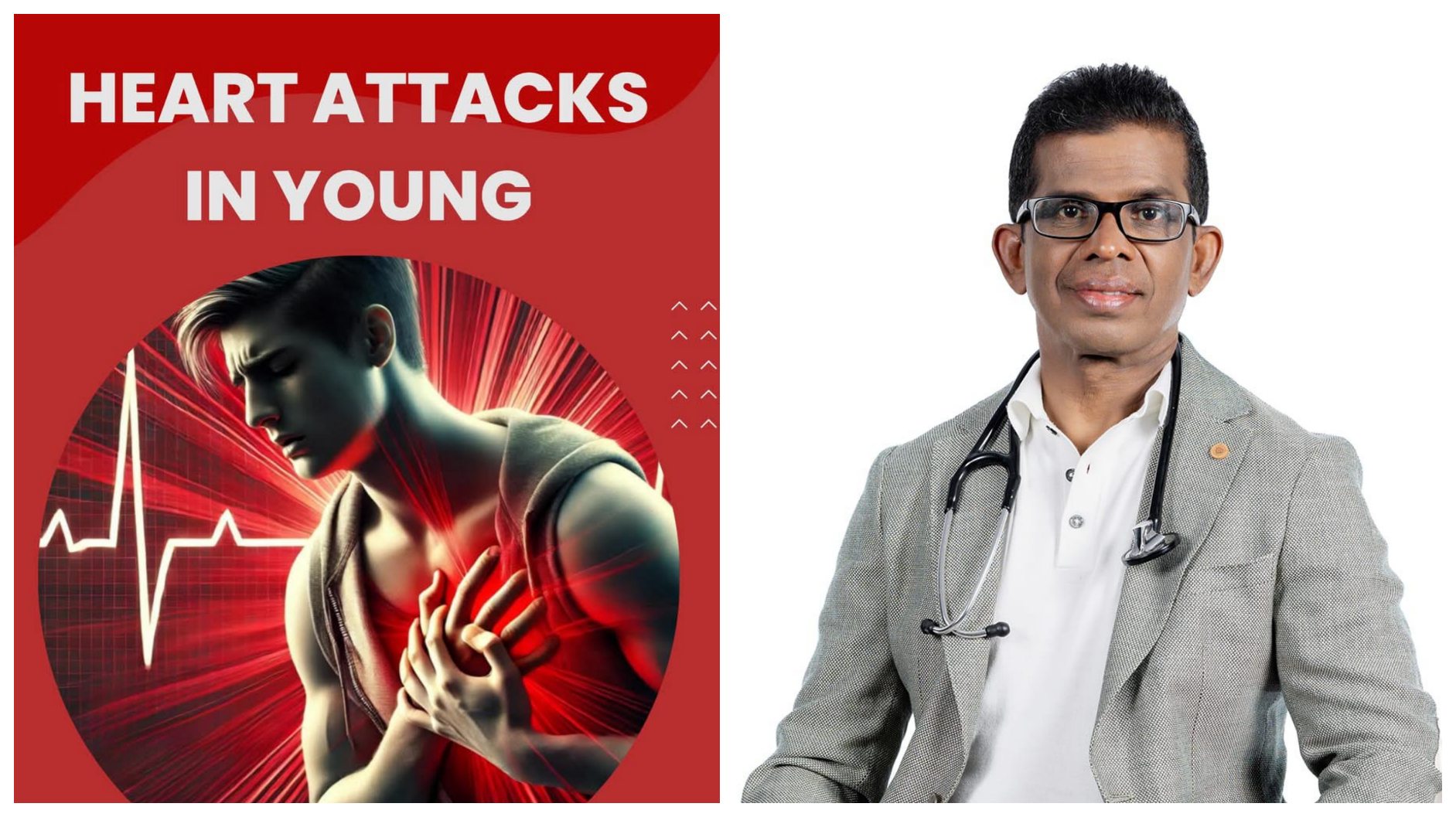
- A Shocking Trend in My Own Practice
As a cardiologist practicing for over 25 years, I have seen a disturbing rise in heart attacks among young adults—especially in Sri Lanka and other South Asian countries. What was once rare in people under 40 has now become alarmingly common. Every month, I encounter individuals in their late 20s and early 30s suffering from heart attacks—many without traditional risk factors like obesity or family history.
- So what’s driving this surge?
In my professional opinion, the answer lies primarily in modern lifestyle choices—specifically, poor diet, physical inactivity, chronic stress, and inadequate sleep. These aren’t just “bad habits” anymore. They are root causes of inflammation, oxidative damage, and early plaque formation in coronary arteries.
- The Hidden Dangers in the Modern Diet
One of the most overlooked contributors to early heart disease is poor diet, especially the consumption of:
1. Refined Sugar
Sugar is not just empty calories. It is a potent inflammatory and oxidative agent. Excessive sugar intake leads to insulin resistance, metabolic syndrome, and damages the endothelial lining of arteries, triggering the formation of atherosclerotic plaques. In Sri Lanka, the consumption of sugary foods and beverages is rampant—especially among the youth. This is reflected in the rising rates of type 2 diabetes, even in teenagers and young adults.
2. Seed Oils (Industrial Vegetable Oils)
Most processed and fast foods are cooked in oils like sunflower, canola, soybean, corn, and palm oil—what we call seed oils. These oils are high in omega-6 polyunsaturated fatty acids (PUFAs), which are highly unstable and prone to oxidation when heated. This generates free radicals—highly reactive molecules that damage the endothelium (the inner lining of your blood vessels), increasing the risk of plaque buildup.
In contrast, coconut oil (traditionally used in Sri Lanka) and olive oil are much more stable and heart-friendly.
3. Ultra-Processed Foods
Almost every packaged snack or fast food contains either refined sugar or seed oils—or both. These foods are engineered to be hyper-palatable but are toxic to the cardiovascular system when consumed regularly.
- Sedentary Life: A Modern Killer
Many young people now live highly sedentary lives. Whether it’s due to screen time, commuting, or work, daily movement has drastically decreased. Physical inactivity leads to insulin resistance, poor circulation, and increased visceral fat—even in people who are not visibly overweight.
- My recommendation:
At minimum, engage in 40 minutes of physical activity at least five days a week. You don’t need a gym membership. Walking is the simplest and most powerful habit to protect your heart. Other activities like swimming, cycling, or dancing are excellent too. The key is consistency.
- The Forgotten Pillar: Sleep
Many young professionals and students sacrifice sleep in pursuit of productivity or entertainment. But what they don’t realize is that sleep deprivation is a major cardiovascular risk factor. Poor sleep increases stress hormone levels (like cortisol), impairs glucose metabolism, and produces oxidative stress that damages the arteries.
Aim for at least 7 hours of quality sleep per night. It’s not a luxury—it’s a medical necessity.
- Final Thoughts: Prevention Is Possible—and Essential
Young people must realize that heart disease is not just their parents’ problem anymore. It is now a disease of the young—quiet, creeping, and often fatal when ignored.
But this is not inevitable. The good news is, early lifestyle changes are extremely powerful. You can reverse many of these risk factors before they become dangerous.
As a cardiologist, here’s my advice to everyone under 40:
• Cut down refined sugar and processed carbs.
• Avoid seed oils—stick to coconut oil or olive oil.
• Eliminate ultra-processed foods from your diet.
• Move your body daily.
• Sleep 7–8 hours every night.
• Listen to your body—don’t ignore unusual fatigue, palpitations, or chest tightness.
• Do regular health check-ups starting from your late 20s, especially if there’s a family history.
Your heart doesn’t wait until retirement to give out. But it will reward you if you take care of it now.
(Dr. Gotabhaya Ranasinghe is a leading general and interventional cardiologist in Sri Lanka)
